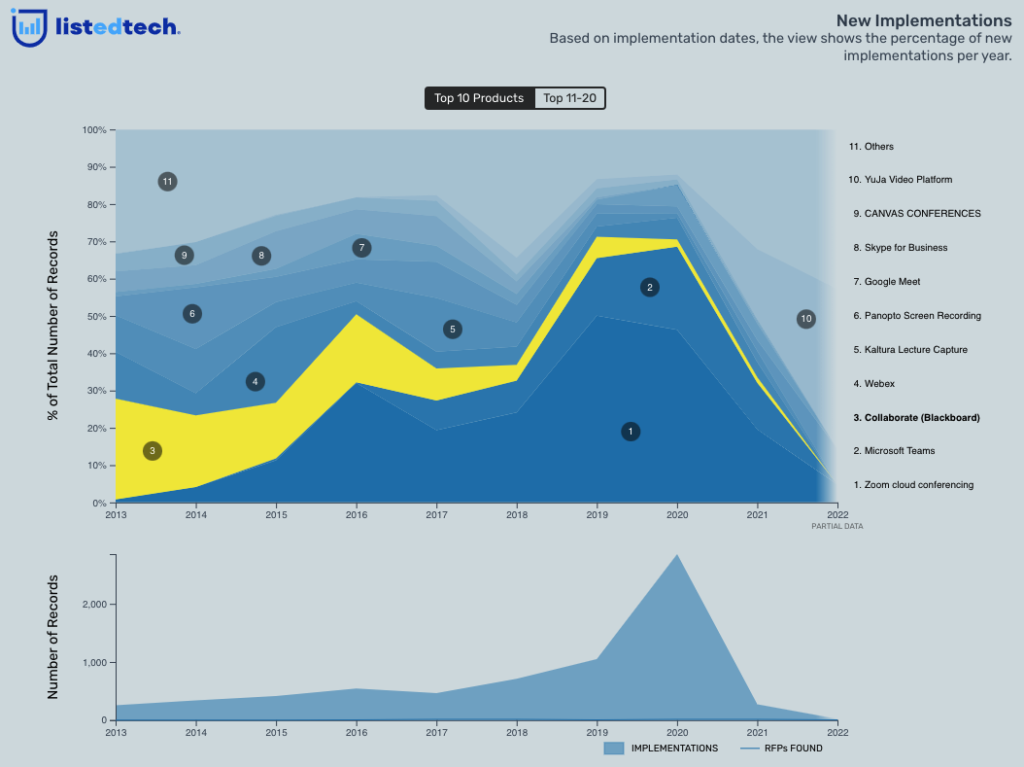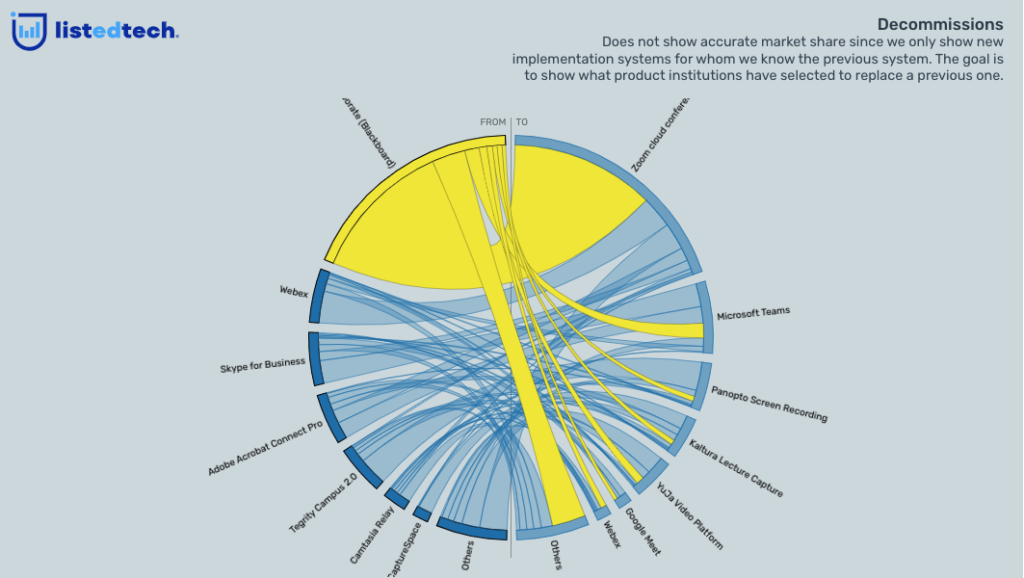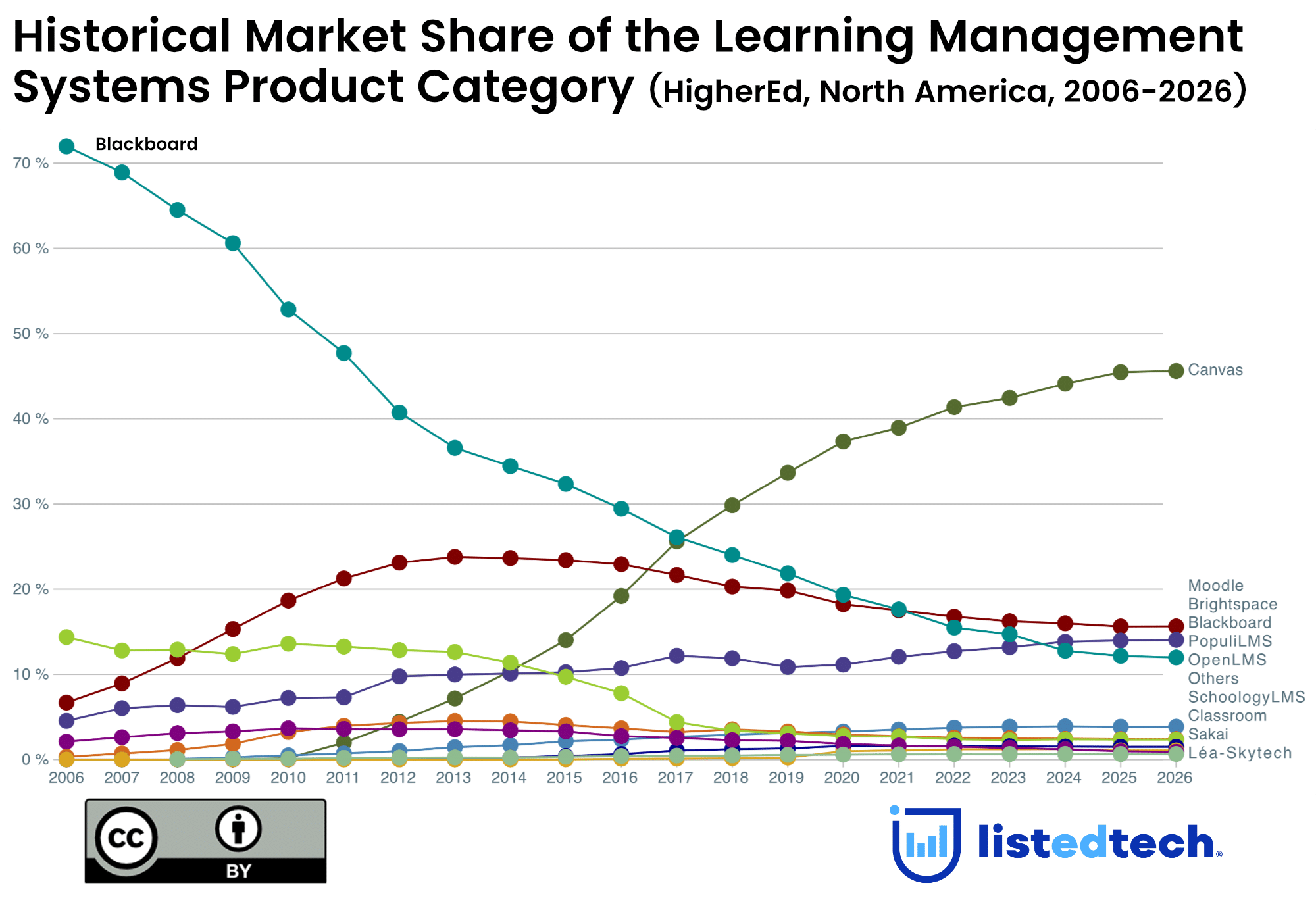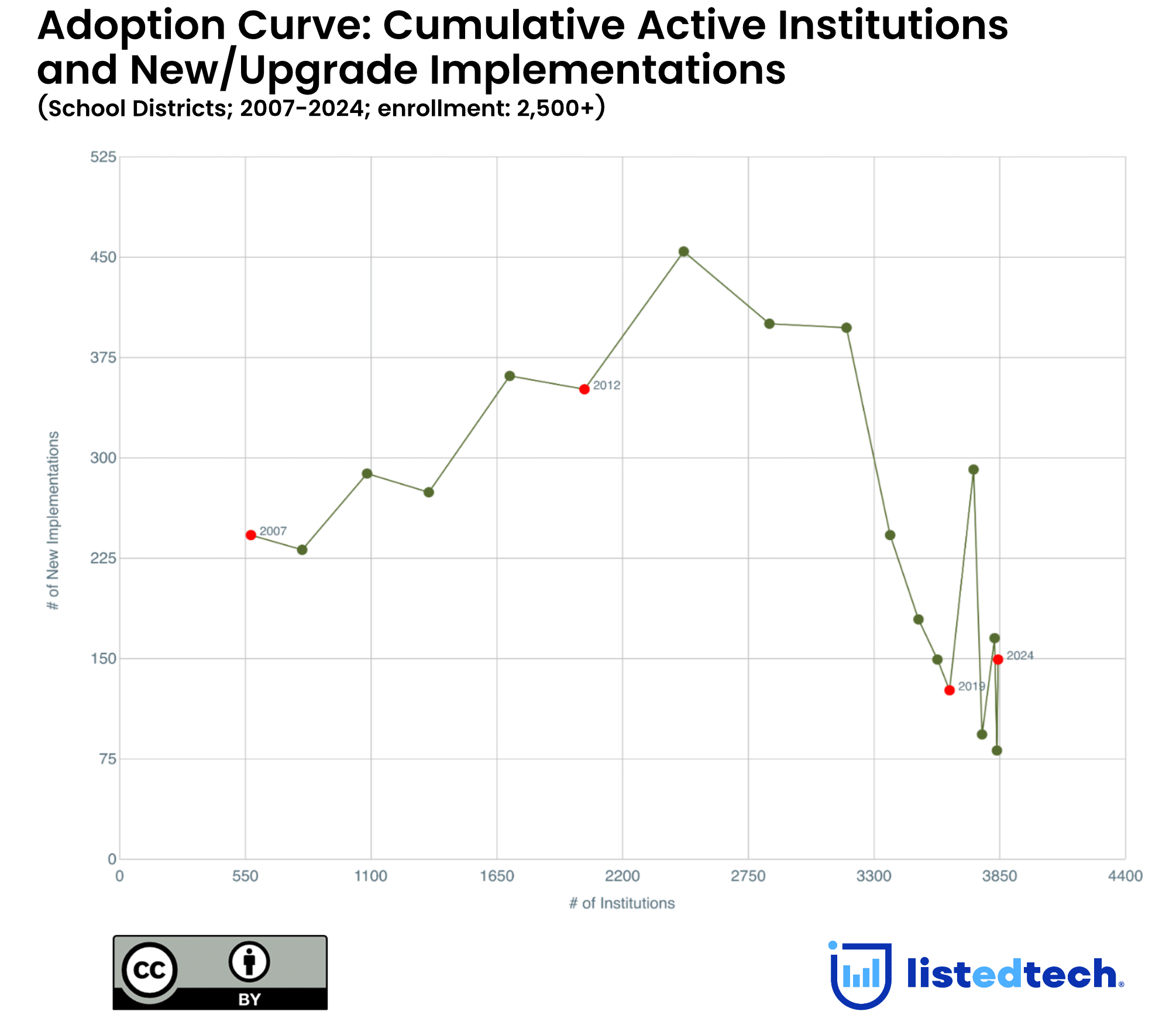
On May 19, 2022, Class and Anthology announced they have signed a definitive agreement for Class to acquire Anthology’s Blackboard Collaborate virtual classroom tool. While Class doubles down on a future with Zoom and Blackboard Collaborate as a virtual classroom tool, Anthology goes all-in on its Blackboard Ultra LMS.
Collaborate and Class: The Numbers
Before the transaction, Blackboard Collaborate stated it has 1,300 institutions in over 75 countries for a total of 10 million users. In ListedTech’s database, we have just under 1,000 active implementations for 9 million enrolled students, which corroborates the company’s numbers. In the conferencing system category, Collaborate’s market share represents 8%, third behind Zoom (31%) and Microsoft Teams (11%).
Class does not have a comparable user base. Since it’s based on the Zoom platform, its potential to grow is exponential compared to its newly acquired product. At the time of the announcement (based on the press release), Class’s client base was about 450, one-third of Blackboard Collaborate. Keep in mind that this company is still considered a startup as it launched in September 2020.
Over the past decade, the Blackboard Collaborate tool has shown stagnation. Even in 2020, when everyone was buying conferencing systems, Collaborate saw very little movement in new implementations.
As we can see in the New Implementations graph below, institutions have selected Collaborate less than Zoom, Microsoft Teams and even Webex (a popular product a decade ago) since 2020. In this product group, YuJa Video Platform is probably the contender to Zoom and Teams and saw an increase in new implementations since 2020. It now represents more than 1.4 million student enrollments.

What Do Anthology and Class Get from this Deal?
In his blog post titled “About the Class Technologies Acquisition of Blackboard Collaborate“, Phil Hill mentions that “[b]esides the reported $210 million, Anthology gets focus. Collaborate was never going to be a growth opportunity for Anthology, as Zoom and Microsoft Teams have passed it by. This is probably the best news from an Anthology and Blackboard perspective, as it shows that the new ownership and management are willing to make changes and not hold on to a platform that is mostly frustrating customers today.” On its end, Anthology will be able to focus on the Ultra LMS.
At the time of the announcement, Class wishes to continue the development of Collaborate but it will certainly use the knowledge acquired in the creation of the Class e-learning solution to align future evolutions. Buying Collaborate is also a return to the roots for Michael Chasen, who has co-founded Blackboard in 1997. The startup will also benefit from this partnership with Anthology in a better integration between Blackboard Learn and Class.
How Does This Transaction Shape the Future of E-Learning and Conferencing Systems?
When the government approves the acquisition, the e-learning category will have a stronger player with Class 2.0. Collaborate, if it survives the acquisition, will most likely use the Zoom platform. As mentioned on PhilonEdTech.com, Class will focus on the Zoom platform “in the long-term play.” This follows the potential-growth logic since Zoom gained 19 million users since 2013 (10 million only in 2020).
“But the primary benefit of market share is undeniable. With any reasonable level of client retention, Class will triple their client base at the least.” (PhilonEdTech.com) The potential growth in the user base is there. We have dug down our database to find out that 56% of Collaborate clients already use Zoom.

It looks like Collaborate users have already started a move away from the app to the benefit of Zoom. In the past decade (see below), the majority of Collaborate decommissions have gone toward the Zoom platform. Making these users switch to Class should not request a huge effort. In addition, having direct access to these clients and helping them make the transition will only ensure Class gains more clients and becomes a reference in the e-learning product group.



